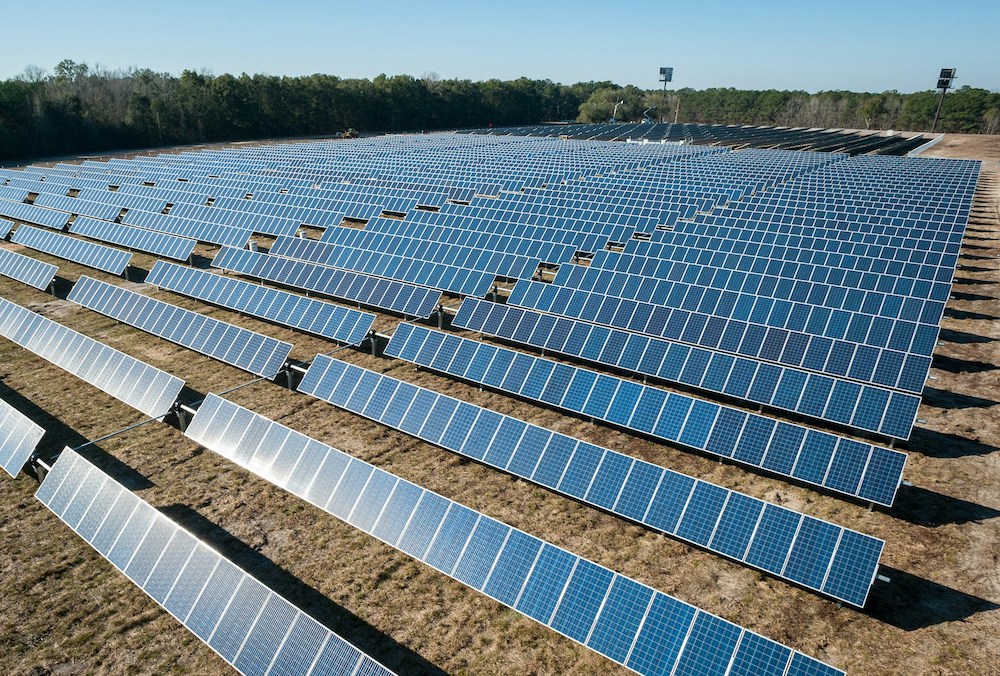
- Details
- By Brian Edwards
- Energy | Environment
A nonprofit credit union organization has filed suit against the Environmental Protection Agency and Citibank, seeking to protect nearly $2 billion in clean energy funding that includes resources designated for tribal communities.
New York City-based Inclusiv, which received a $1.87 billion award through the Clean Communities Investment Accelerator (CCIA) program last year, filed its complaint in the U.S. District Court for the District of Columbia on March 31. The organization is challenging the EPA's attempt to terminate and reclaim funds from the Greenhouse Gas Reduction Fund (GGRF).
The legal action comes after a federal judge temporarily blocked the EPA from terminating grants to three other nonprofits funded through a related GGRF program. Judge Tanya S. Chutkan's ruling protected approximately $20 billion in grants, including $1.5 billion committed for tribal energy projects.
"Our decision to take legal action is not only about Inclusiv. This is about protecting the CCIA program and the interests of community lenders, families and small businesses who stand to benefit from the savings the program would provide to them," Cathie Mahon, president and CEO of Inclusiv, said in a statement.
In a similar case filed Monday, Washington, D.C.-based Justice Climate Fund (JCF) also sued the EPA, Administrator Lee Zeldin, Acting Deputy Administrator William Charles McIntosh, and Citibank over its own CCIA grant. The organization's lawsuit details how the EPA purportedly terminated its funding without proper legal basis and how Citibank has refused to release funds despite contractual obligations.
JCF's complaint alleges violations of the Administrative Procedure Act, federal regulations, the Inflation Reduction Act, the Appropriations Clause, and the Due Process Clause. Like Inclusiv, JCF is a nonprofit that was awarded funding through a competitive process to provide financial assistance to community lenders for clean energy projects.
The CCIA program directly supports tribal communities through several grantees, including the Native CDFI Network (NCN), which received $400 million specifically to serve Native communities across 27 states. According to EPA documentation, NCN planned to provide capital and technical support to its network of 63 community lenders to finance distributed energy generation and zero-emissions transportation projects in tribal areas nationwide.
Appalachian Community Capital, another CCIA recipient awarded $500 million, included Native communities among its priorities through its Green Bank for Rural America initiative. The program aims to leverage private capital to finance an estimated $1.6 billion into 2,000 new energy projects, creating 13,000 jobs while reducing harmful pollution.
The funding freeze has already impacted dozens of tribal initiatives. The Quapaw Nation of Oklahoma had calculated precise economic benefits from a planned community microgrid: 2.6 million kilowatt hours annually, $280,000 in energy cost savings, and a reduction in tribal members' energy burden from 11% of annual income to closer to the national average of 3%.
"Energy sovereignty is not something we're taking haphazardly — we've devoted significant resources to looking at all our options," John Jackson, Jr., construction project manager for Quapaw Nation, told Tribal Business News.
The Northwest Native Chamber's Center for Tribal Nations project in Portland also faces uncertainty over a $300,000 grant for technical and design assistance for a climate-resilient, multipurpose hub for urban Natives.
In her ruling on the earlier case, Judge Chutkan wrote that EPA officials failed to provide concrete evidence of fraud or wrongdoing when terminating the grants. "Vague and unsubstantiated assertions of fraud are insufficient," she wrote. In a court order issued Monday, March 31, Judge Chutkan extended the temporary restraining order for an additional seven days until April 8, finding "good cause exists for the same reasons justifying the TRO in the first place."
EPA Administrator Lee Zeldin has claimed the GGRF grants are "riddled with self-dealing and wasteful spending," but has not provided specific evidence regarding any of the programs.
Inclusiv's lawsuit seeks to unfreeze its funds and prevent the EPA from terminating its grant, arguing the agency's actions violate multiple federal laws and constitutional provisions.
Inclusiv's own CCIA workplan highlights its commitment to tribal communities, earmarking specific funding across all 10 EPA regions. According to the organization's detailed implementation plan, they plan to provide $76 million in grant funds to tribal communities that would leverage an additional $151 million in private capital, delivering approximately 45,000 clean energy projects.
Editor's Note: This story has been updated with information about Justice Climate Fund's lawsuit filed on Monday, March 31.
